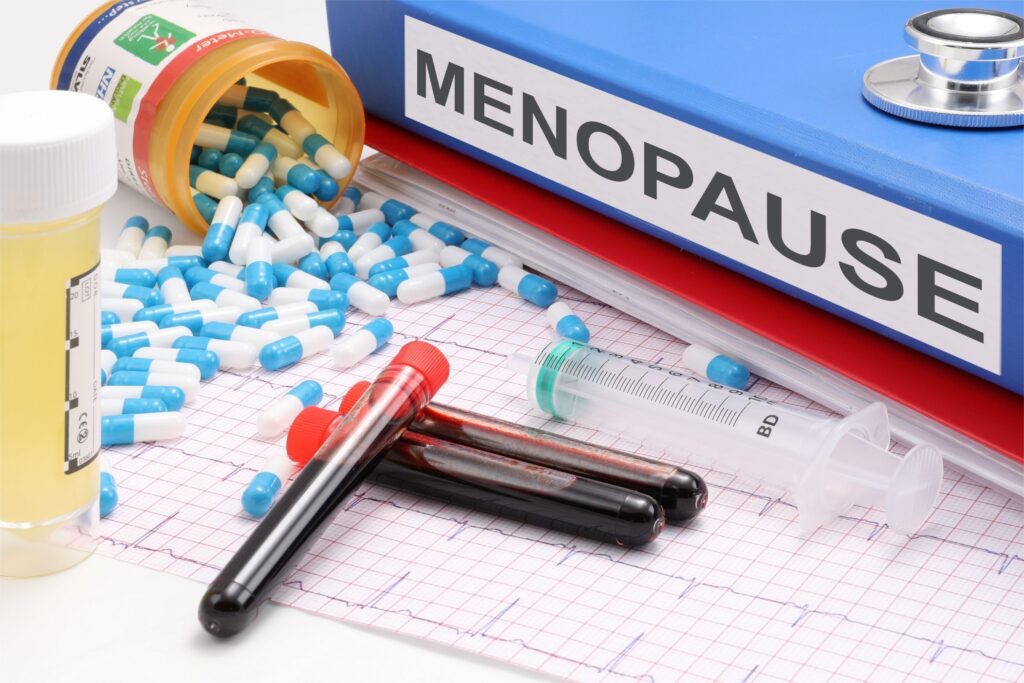
Menopause is a natural phase in a woman’s life that marks the end of her reproductive years. Typically occurring in the late 40s or early 50s, menopause is characterized by a decrease in hormone production, particularly estrogen and progesterone, leading to a cessation of menstrual cycles. While every woman experiences menopause differently, there are some common symptoms associated with this transitional period. In this article, we will delve into 34 common symptoms of menopause, providing a better understanding of what women might expect during this transformative stage.
1. Irregular Periods: As menopause approaches, menstrual cycles may become irregular, with variations in the length and intensity of periods.
2. Hot Flashes: One of the most recognizable symptoms, hot flashes, causes sudden sensations of heat, accompanied by sweating and flushed skin.
3. Night Sweats: Similar to hot flashes, night sweats occur during sleep and can disrupt a woman’s rest.
4. Vaginal Dryness: Decreased estrogen levels can lead to vaginal dryness and discomfort during intercourse.
5. Mood Swings: Hormonal fluctuations may cause rapid and intense changes in mood.
6. Sleep Disturbances: Menopausal women may experience difficulties falling asleep or staying asleep.
7. Fatigue: Chronic fatigue can be a result of hormonal changes and sleep disturbances.
8. Weight Gain: Many women notice weight gain or a shift in body composition during menopause.
9. Hair Loss: Thinning hair or hair loss is a potential symptom.
10. Decreased Libido: A decline in sex drive can occur due to hormonal imbalances.
11. Memory Issues: Some women report difficulties with memory and concentration during menopause.
12. Dry Skin: Estrogen reduction may lead to dry and itchy skin.
13. Joint Pain: Menopausal women might experience joint pain or stiffness.
14. Headaches: Hormonal fluctuations can trigger headaches or migraines.
15. Urinary Problems: Some women may experience urinary incontinence or frequent urination.
16. Changes in Body Odor: Hormonal changes can lead to alterations in body odor.
17. Breast Tenderness: Breasts may become more sensitive or tender.
18. Digestive Issues: Menopause can cause changes in digestion, leading to bloating or indigestion.
19. Osteoporosis: Reduced estrogen levels increase the risk of bone density loss.
20. Changes in Body Shape: Shifts in fat distribution may alter a woman’s body shape.
21. Electric Shock Sensations: Some women report experiencing brief electric shock-like sensations.
22. Anxiety: Feelings of anxiousness or nervousness might arise.
23. Panic Attacks: Menopause can trigger panic attacks in some individuals.
24. Allergies: Some women may experience an increase in allergy symptoms.
25. Gum Problems: Hormonal changes may lead to gum sensitivity or discomfort.
26. Brittle Nails: Nails can become more fragile during menopause.
27. Changes in Body Hair: Hair growth patterns might shift, leading to changes in body hair.
28. Dizziness: Some women may experience dizziness or lightheadedness.
29. Electric Shock Sensations: Some women report experiencing brief electric shock-like sensations.
30. Changes in Odor Perception: Women might notice changes in how they perceive certain odors.
31. Gum Problems: Hormonal changes may lead to gum sensitivity or discomfort.
32. Brittle Nails: Nails can become more fragile during menopause.
33. Changes in Body Hair: Hair growth patterns might shift, leading to changes in body hair.
34. Dizziness: Some women may experience dizziness or lightheadedness.
Menopause is a natural biological process that all women go through, and it brings about various physical and emotional changes. The 34 symptoms outlined in this article provide a comprehensive understanding of what women may encounter during this transitional phase. It’s important to remember that every woman’s experience with menopause is unique, and not everyone will experience all of these symptoms. If you are going through menopause and find the symptoms overwhelming or disruptive to your daily life, it’s essential to consult with a healthcare professional. With proper support and guidance, women can navigate menopause with greater ease and embrace this new chapter of life with confidence.
